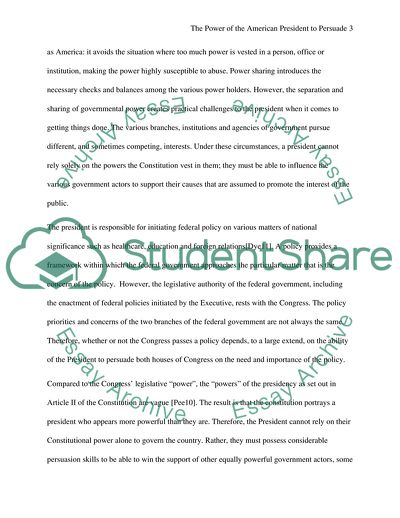Cite this document
(The Power of the American President to Persuade Case Study, n.d.)
The Power of the American President to Persuade Case Study. Retrieved from https://studentshare.org/politics/1862766-aposthe-power-of-the-american-president-is-to-persuadeapos-discuss-in-relation-to-recent-presidents
The Power of the American President to Persuade Case Study. Retrieved from https://studentshare.org/politics/1862766-aposthe-power-of-the-american-president-is-to-persuadeapos-discuss-in-relation-to-recent-presidents
(The Power of the American President to Persuade Case Study)
The Power of the American President to Persuade Case Study. https://studentshare.org/politics/1862766-aposthe-power-of-the-american-president-is-to-persuadeapos-discuss-in-relation-to-recent-presidents.
The Power of the American President to Persuade Case Study. https://studentshare.org/politics/1862766-aposthe-power-of-the-american-president-is-to-persuadeapos-discuss-in-relation-to-recent-presidents.
“The Power of the American President to Persuade Case Study”. https://studentshare.org/politics/1862766-aposthe-power-of-the-american-president-is-to-persuadeapos-discuss-in-relation-to-recent-presidents.


